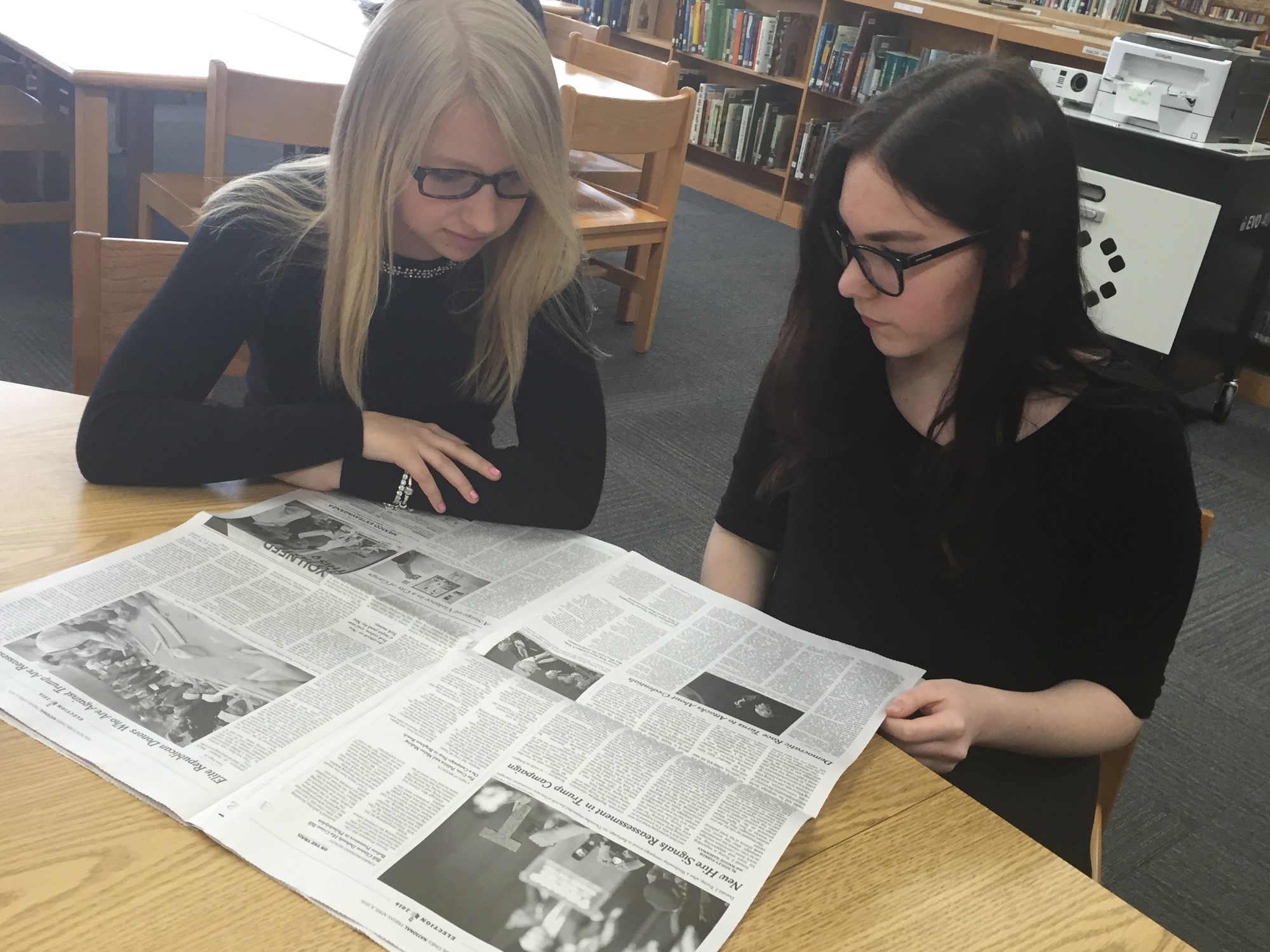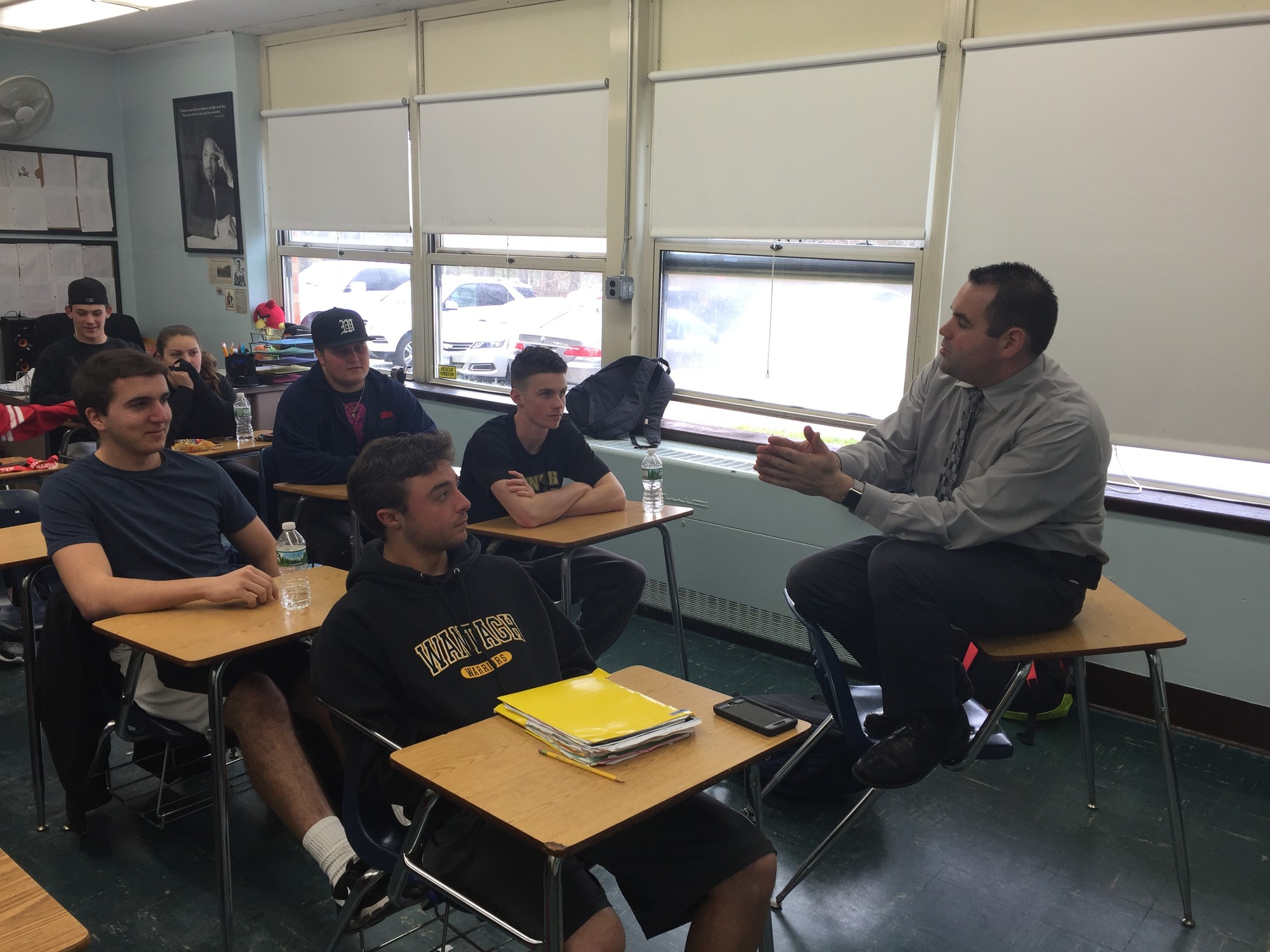Student voters getting informed
As New York’s presidential primary approaches, voters across the state are ready to decide who they feel should represent their party in November’s general election.
Many high school seniors are watching with great anticipation, knowing that in seven months they will be able to vote for the first time. They have used primary season as a way to learn more about the candidates and their stances on important issues, and are beginning to formulate their opinions on the five remaining hopefuls.
“Social media is a good outlet for information,” said Seaford High School senior Kaelin King. She explained that while many people put their opinions up on sites like Facebook and Twitter, there are also links to many informative articles.
King just turned 18 and Elise Weber will reach voting age in September, and they plan to vote for president. Since they are both staying home for college, the pair will be able to vote at their local polling place. “I’m really excited that I’m turning 18 in time,” Weber said. “I’m excited to be a part of it. Politically, it marks our adulthood.”
Many Wantagh High School students have also been paying close attention. Social studies teacher Steve Benner regularly leads discussions about the presidential primary in his public affairs classes, and for many seniors, those talks have been their introduction to the election. For others, it has furthered their interest.
“It’s pretty cool because I’ve always been pretty into politics,” said Alaina Bello, 18, about voting for the first time in November. “It’s our future. When the next person is president, we’ll be in college.”
Bello said she has been watching both the Democrat and Republican debates, and said she would vote for Donald Trump if he is a candidate in November.
The choice isn’t clear for everyone. Samara Kalmus, who will be 18 in time for the election, said the quality of the candidates is off-putting. She plans to vote in November, but doesn’t know who she feels comfortable supporting.
“Personally, I think they’re all really bad candidates,” she said. “None of them have the leadership skills to be in charge of a country. A lot of us are going to be voting for the first time and I don’t even want to vote because they’re all so terrible.”
Christian Langenfeld, 18, plans to vote in the Republican primary next week. He registered by signing up in class. He noted the hostile tone of the election.
Bruno Surace, also 18, didn’t register for a party so he will wait until November to vote for the first time. “I feel like this time actually matters,” he said of why he plans to cast his first ballot. “It’s very close this year.”
Surace added that he enjoys the discussions in class about the presidential race, and feels it is an interesting election.
William Quinn III said he has been learning about the candidates largely through social media. “I’m definitely looking forward to voting,” he said. “This is the first time I’m going to be able to vote so it’s kind of exciting. I feel like I’m making a difference in America.”
Senior Darcie Smith said she won’t be 18 until August and can’t vote in the primary, so she is waiting until the Republican and Democratic nominees are chosen to really get to know the candidates. Issues that will sway her vote are college tuition, gun control and immigration.
Keith Wehr, said he will miss being able to vote in the general election by 20 days and is disappointed because he has an active interest in politics. That doesn’t mean he doesn’t have opinions, though, and echoed a sentiment of several of his classmates. “There’s no one good in this election,” he said. “It’s about picking the least worst person.”
King said that some of the campaign videos she has seen have made the presidential election feel more like a Saturday Night Live skit. While some of the behavior among the candidates has seemed unprofessional, she explained, it has given the election a level of excitement that makes her want to vote.
“I feel this will increase the voting rate for our generation,” Weber added.
King and Weber said they both took a quiz in their participation in government class, in which they answered questions about the issues, and then best matched with a candidate. King was found to be aligned closely with the viewpoints of Bernie Sanders, while Weber’s score showed that she would likely be a Donald Trump supporter.
They noted that living in Seaford seems to give students an increased awareness about politics because it is home to Congressman Peter King, a national figure on homeland security issues and once considered a 2016 presidential candidate.
Weber lives three doors down from the Congressman who is a regular at Seaford events, including the Sept. 11 memorial ceremony and high school graduation. “It’s really cool we have a Congressman who lives in our area,” Weber said. “We’re thinking about the same things he is.”
The Seaford seniors noted the diversity of the presidential candidates. The first woman could be elected (Hillary Clinton), or the oldest president (Sanders), or someone who has never held a public office (Trump). They both see this as being a very policy-focused election. “You have to educate yourself before you vote,” King said.
Seaford’s Social Studies Department Chairwoman Linda Kratzer said that teachers are encouraging students to participate in this election, and voter registration has been offered in classes. She also said what’s most important is getting them information so they will be informed voters when they head to the polls for the first time. “We want them to make intelligent choices,” she said, “be educated on the issues.”

 49.0°,
Mostly Cloudy
49.0°,
Mostly Cloudy 







